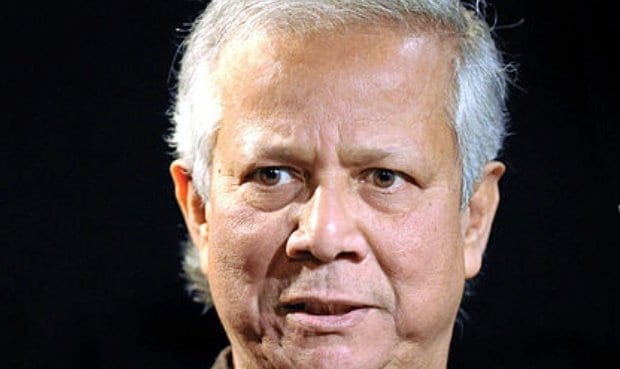A Bangladeshi lesbian couple has been jailed for “unsocial activities,” Gay Star News reports.
Lucky and Mishti lived together for eight months after meeting in a factory in Dhaka. After police were tipped off about their relationship, they were taken in for “sex identification tests” and then arrested.
Gay sex is illegal in Bangladesh and punishable by 10 years of hard labour.
Another lesbian couple was arrested in July and threatened with life in jail.
Meanwhile, Bangladeshi Muslim groups called for protests Oct 1 against Bangladeshi human rights crusader Muhammad Yunus for supporting LGBT people, Agence France-Presse reports.
Yunus is the founder of the Grameen Bank, a wildly successful microcredit institution in Bangladesh. In April, he signed a letter along with three other Nobel Prize laureates, calling for acceptance of gay rights around the world.
“Yunus must apologize for supporting homosexuality or he must be prosecuted for standing against the Koran and Islam,” said Dhaka National Mosque secretary Maolana Moniruzzaman Rabbani.
This is only the latest attack on Yunus, who has fallen afoul of the Bangladeshi government by building the powerful Grameen Bank outside of state control.


 Why you can trust Xtra
Why you can trust Xtra


